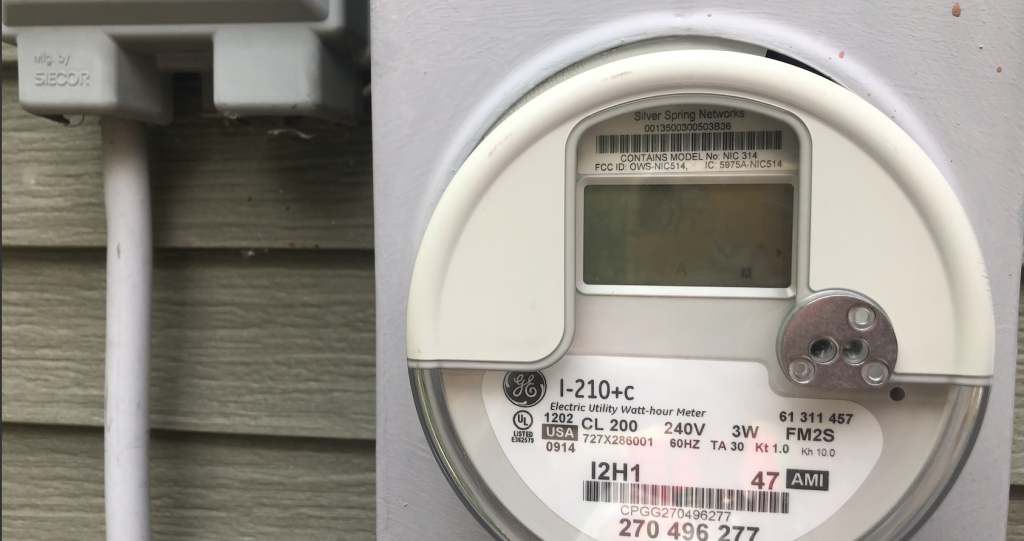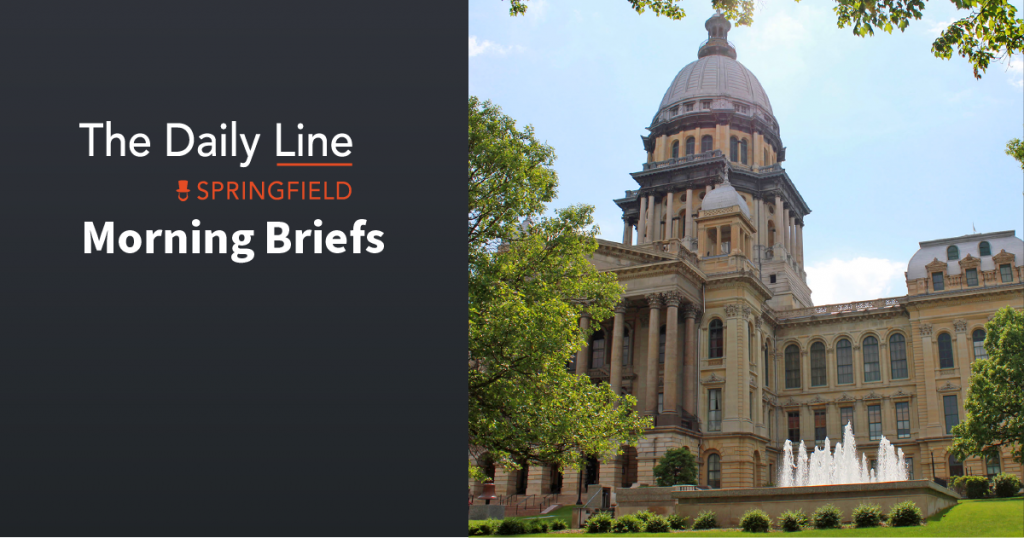Springfield News
-
 The Illinois Commerce Commission on Thursday is expected to approve a plan
The Illinois Commerce Commission on Thursday is expected to approve a plan
The Illinois Commerce Commission (ICC) on Thursday is expected to approve a plan to extend shutoff utilities protections for those unable to pay the full amount due to financial hardship during the Covid-19 pandemic. -

-
The Joint Commission on Administrative Rules (JCAR) on Tuesday approved several state agency rules including one that sets the countdown clock for the state to award cannabis dispensary licenses to social equity applicants as early as the end of July.
-
Gov, JB Pritzker on Tuesday signed a bill that significantly expands Illinois’ vote by mail program ahead of the November election amid fears of a second wave of the coronavirus. But state elections officials are not confident that they can have the full program rolled out before election day.
-
ddddd

-
The state’s commercial real estate industry is preparing for a tumultuous future as businesses throughout Illinois could leave their physical storefronts and office spaces following the three-month lockdown due to the Covid-19 pandemic.
The potential of a shrinking tax base is worrying municipalities that say the burden would then be shifted onto homeowners — something that could have political ramifications in a state consistently ranked as having the highest property taxes in the nation.
Illinois Municipal League Executive Director Brad Cole said he hears from hundreds of mayors throughout the state who worry that businesses will realize the redundancy of a big, expensive storefront property when online commerce and telecommuting easily serves their needs. Cole said that could easily have a downstream effect on other local businesses, like restaurants or bars that enjoy foot traffic or serve as a lunch or post-work meeting spot.
“If they’re not commuting to a downtown, they’re not buying lunch at the local sandwich shop,” Cole said.
But even without a mass exodus of retail and office tenants, commercial properties are predicted to see a major decline in property values, according to a report released earlier this month by Moody’s Analytics.
“Commercial values will show steeper declines caused by the sudden mandatory closures of restaurants, hotels and retail stores,” according to the report.
While a fix in the way online sales taxes are collected and remitted to local governments should ease the pain of the loss of physical shopping in many municipalities, Cole said empty storefronts and vacant buildings due to Covid-19 might cause permanent damage to municipalities’ business districts.
Preventing sales tax losses to lead to property tax hikes
Though municipalities won’t be making any decisions to raise property taxes until the end of the year, Cole said current sales tax losses are warning signs it could become a possibility.
The village of Schaumburg, for example, is projecting $20 million in revenue losses, including sales taxes, hotel taxes and food and beverage taxes. Schaumburg is a mecca of retail and office space in the Northwest suburbs, featuring large office parks and Woodfield Mall, still one of the largest shopping centers in the nation.
Village of Schaumburg spokeswoman Allison Albrecht said the village voted to defer capital projects, replace old vehicles and buildings and implement hiring freeze in its April budget. While the same budget cut property taxes based on paying off a decade-old bond program, Albrecht said a property tax hike wasn’t off the table for the future.
“It’s something our village board would have to take a very close look at to determine whether they want to change policies moving forward,” Albrecht said. “We’re making reductions in our budget just to keep up with the amount of revenues not coming in.”
Chicago Mayor Lori Lightfoot said last week that property tax hikes and layoffs are on the table if the city cannot find ways to fill the widening budget gap created by lost revenues in the hotel, entertainment, and other sectors.
Albrecht said it was "a really good sign” that approximately 50 local restaurants have elected to move forward with outdoor dining after Gov. JB Pritzker altered his economic reopening plan to allow for outdoor food and drink service beginning in late May.
“People want to come back,” she said.
Commercial real estate tries to prevent losses
Instead of completely pulling out of retail spaces, the commercial real estate market is trying to work with businesses to adjust their leases or come up with a payment plan for back-due rent, according to Austin Weisenbeck, the senior vice president of investments for retail at Marcus & Millichap, a real estate firm with holdings in Chicago and the suburbs. Weisenbeck said the commercial landlords he works with have made attempts to structure agreements with their businesses.
“[They’re] structuring an arrangement with a landlord by which they can handle some of the short-term pain that they’re experiencing to lessen the blow of it,” Weisenbeck said. “Whether that’s in the form of rental abatement or deferring rent.”
But Weisenbeck said it’s too early to tell whether the fears of vanishing retail and office tenants are warranted or if consumer behavior and workplace protocols will have changed after three months of working from home.
“Every disruption causes change,” Weisenbeck said. “But I want to personally be optimistic.” -

-
Chico Tillmon has been waiting months to find out whether he will be awarded a cannabis dispensary license, which have been delayed due to Covid-19.
At a time when Illinois is reaping millions of dollars in revenue from its newly minted recreational cannabis industry, the more than 600 minority applicants for licenses to sell cannabis say the state is long overdue in allowing them into the market. -
Deaf and hard-of-hearing prisoners had to wait up to eight months for audiological evaluations in order to receive hearing aids a year after the state inked a class action settlement agreement with its deaf population in 2018, according to a federal judge’s ruling issued this week.
U.S. District Judge Young B. Kim found the Illinois Department of Corrections (IDOC) had failed to hire audiologists to perform evaluations for prisoners after failing hearing screenings. Instead, the department hired licensed hearing instrument dispensers — those with many fewer years of schooling and training than hearing specialists — to perform the testing.
While IDOC said that practice ended last summer, Judge Kim said the agency’s failure to comply with the July 2018 settlement agreement violated deaf prisoners’ civil rights as it left them unable to properly hear the world around them.
Related: Deaf prisoners settle years-long lawsuit with state over accommodations
“While the court appreciates IDOC’s difficulties in identifying audiologists to perform Audiological Evaluations, it simply is not reasonable for a Class Member to wait up to eight months after a failed Hearing Screening to receive an Audiological Evaluation,” Judge Kim wrote in his order. “The ability to communicate is essential not only for safety and disciplinary matters…but also for the protection of civil rights.”
A spokeswoman for IDOC declined to comment, citing pending litigation.
The 2018 settlement resolved a years-long case in which hard-of-hearing prisoners alleged IDOC systematically failed to provide American Sign Language interpreters to inmates and did not offer alternate forms of communication to inmates.
The use of licensed hearing instrument dispensers instead of audiologists was “extensive,” according to plaintiffs; they performed 700 or more hearing evaluations in IDOC’s 26 facilities, Judge Kim said.
Plaintiffs attorney Rachel Weisberg of Chicago-based disabilities rights organization Equip for Equality said she and her co-counsel were surprised that the state would neglect to follow the terms of the settlement in its first year, but said she believed IDOC’s contention that its major contracting health service provider, Wexford Health Services Inc., was the party flouting the settlement.
“IDOC told us they didn’t know this is happening because Wexford was doing it,” Weisberg said. “But the court made quite clear these types of violations won’t be tolerated.”
Wexford has been the subject of other litigation, including major federal consent decrees for its alleged failure to treat patients in prison with a certain standard of care.
Related:- Illinois will overhaul prison medical care system under new consent decree
- Federal judge rules state officials violated prisoners’ Constitutional rights — again
- Prison healthcare provider settlement after inmate cancer death must be released: Supreme Court
Last year, Wexford changed a policy that would effectively refuse prisoners eye surgery if they had one eye that worked after WBEZ reported on the so-called “one good eye” policy, which Wexford considers a “trade secret.” -
The Illinois Gaming Board on Thursday awarded master sports wagering licenses to seven Illinois casinos, opening the door for them to operate mobile sports betting in the near future.












